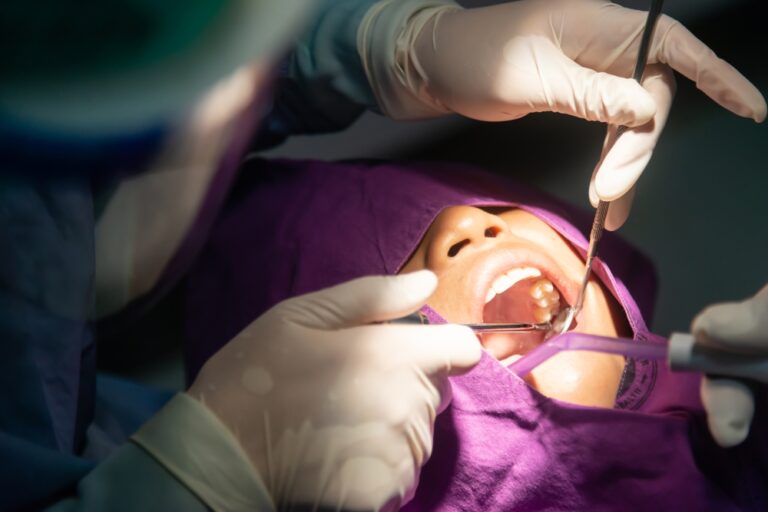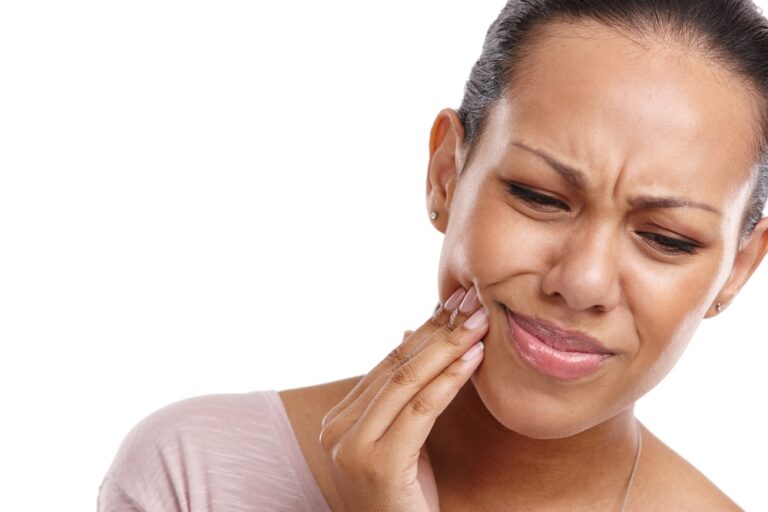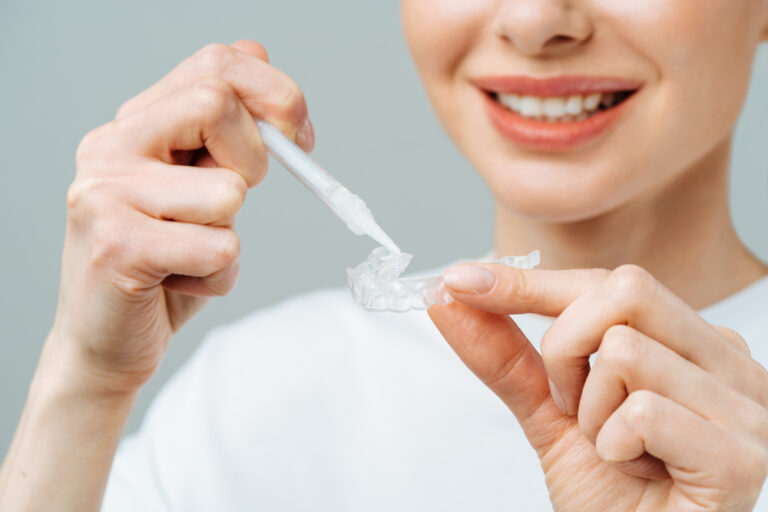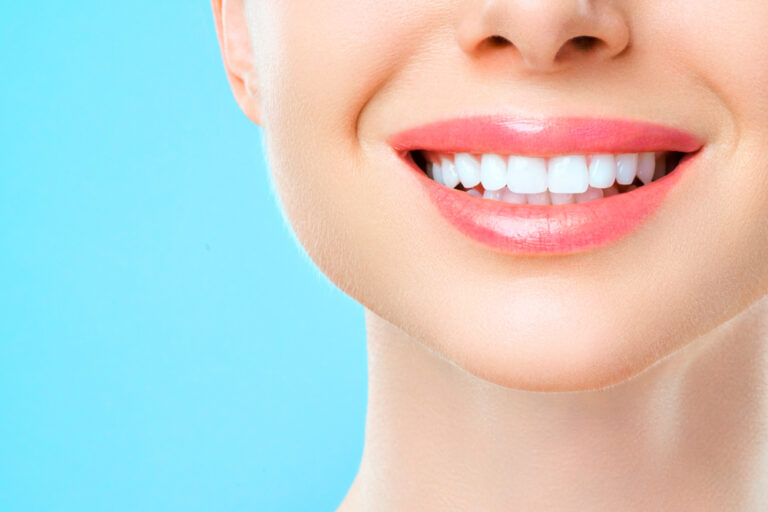Do you grind or clench your teeth? If so, you may be wondering if it’s possible to break your teeth by clenching too hard. The answer is yes, it is possible.
Clenching your teeth puts a lot of pressure on them, which can cause them to crack or break. This is especially true if your teeth are already weakened by decay or other damage. In fact, clenching and grinding your teeth can cause a variety of dental problems, including worn-down enamel, tooth sensitivity, and even jaw pain.
So, what can you do to prevent tooth damage from clenching and grinding? There are several options, including mouthguards, splints, and other dental appliances that can help protect your teeth. In some cases, your dentist may also recommend stress-reducing techniques or other lifestyle changes to help you stop clenching and grinding your teeth.
Understanding Teeth Clenching
What is Teeth Clenching?
Teeth clenching, also known as bruxism, is a condition where you grind, gnash, or clench your teeth unconsciously. This can happen during the day or at night while you sleep. Teeth clenching is a common problem that affects many people of all ages, and it can cause serious damage to your teeth if left untreated.
People who clench their teeth during the day may be doing so due to stress, anxiety, or tension. Those who clench their teeth at night may be doing so due to sleep disorders, such as sleep apnea, or because of an abnormal bite or missing teeth. Teeth clenching can also be a side effect of certain medications.
Common Causes
There are several common causes of teeth clenching, including:
- Stress and anxiety: If you’re feeling stressed or anxious, you may clench your teeth without even realizing it.
- Sleep disorders: Sleep apnea and other sleep disorders can cause teeth clenching during the night.
- Abnormal bite: If your teeth are not aligned properly, you may clench your teeth to try to correct your bite.
- Missing teeth: If you have missing teeth, your remaining teeth may shift, causing an abnormal bite that can lead to teeth clenching.
- Medications: Certain medications, such as antidepressants, can cause teeth clenching as a side effect.
If you suspect that you may be clenching your teeth, it’s important to talk to your dentist. They can examine your teeth and jaw to determine if you have bruxism and develop a treatment plan to help alleviate your symptoms.
Impacts on Dental Health

If you clench your teeth too hard, it can lead to various dental problems. In this section, we will discuss two main impacts of clenching on your dental health: tooth damage and gum problems.
Tooth Damage
Clenching your teeth can cause severe damage to your teeth. The constant pressure on your teeth can wear down tooth surfaces and tooth enamel, leading to height loss and increased tooth sensitivity. Additionally, constant stress and pressure can crack, chip, fracture or loosen teeth. Grinding can also damage fillings, crowns or bridges you may already have.
Tooth damage caused by clenching can lead to various dental issues such as cavities, tooth decay, and gum disease. In severe cases, you may even need to get a root canal or tooth extraction.
Gum Problems
Clenching can also cause problems with your gums. The unnatural pressure on your teeth can lead to inflamed periodontal tissue. This inflammation can cause gum recession, which can lead to tooth sensitivity and even tooth loss.
In addition, clenching can also cause problems with your temporomandibular joint (TMJ), which connects your jawbone to your skull. TMJ problems can cause pain and discomfort in your jaw, face, and neck.
To prevent tooth damage and gum problems caused by clenching, it’s essential to seek treatment from a dental professional. They can recommend various treatments such as a mouthguard or relaxation techniques to help reduce clenching and prevent dental problems.
Symptoms of Over-clenching
If you clench your teeth too hard, you may experience a range of symptoms. Here are some common signs of over-clenching:
- Headaches: Clenching your teeth can cause tension headaches that are felt in the temples, forehead, or back of the head.
- Jaw pain: Over-clenching can cause pain in the jaw joint and surrounding muscles. This pain may be felt as a dull ache or a sharp, stabbing pain.
- Tooth sensitivity: Clenching can cause the enamel on your teeth to wear down, which can lead to increased sensitivity to hot and cold temperatures.
- Cracked or chipped teeth: Over time, clenching can cause your teeth to weaken and become more prone to cracking or chipping.
- Difficulty opening your mouth: If you clench your teeth for an extended period of time, you may find it difficult to open your mouth fully.
If you are experiencing any of these symptoms, it’s important to talk to your dentist. They can examine your teeth and jaw to determine if clenching is the cause of your discomfort. In some cases, they may recommend a mouthguard to help prevent further damage to your teeth.
Prevention and Treatment Methods
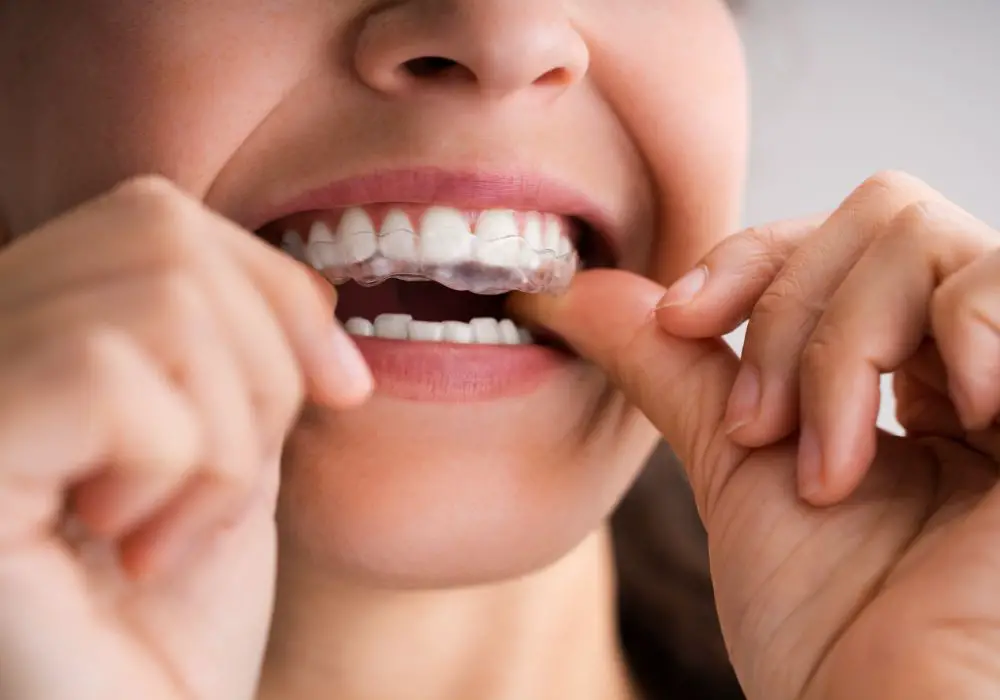
If you are experiencing teeth clenching, it is important to take steps to prevent any damage to your teeth. Here are some prevention and treatment methods you can try.
Dental Interventions
Your dentist may recommend dental interventions to help prevent damage to your teeth from teeth clenching. Here are some common dental interventions:
- Mouthguards: A mouthguard can be worn to protect your teeth from the pressure of clenching. Your dentist can fit you for a custom mouthguard that will fit your teeth perfectly.
- Dental correction: If your teeth have already been damaged from teeth clenching, your dentist may need to reshape the chewing surfaces of your teeth or use crowns to repair the damage.
Lifestyle Changes
Making lifestyle changes can also help prevent teeth clenching. Here are some lifestyle changes you can try:
- Stress management: Stress is a common cause of teeth clenching. Activities that reduce stress, like yoga and meditation, may help lessen teeth clenching.
- Counseling: If you find that your teeth clenching is tied to intense emotions, counseling can help you learn to manage those emotions.
- Avoiding caffeine and alcohol: Caffeine and alcohol can make teeth clenching worse, so it’s best to avoid them if you are prone to teeth clenching.
- Jaw exercises: Strengthening the muscles in your jaw can help reduce teeth clenching. Your dentist or physical therapist can recommend exercises to help with this.
Remember, if you are experiencing teeth clenching, it is important to talk to your dentist. They can help you find the best prevention and treatment methods for your specific situation.
When to Consult a Dentist
If you suspect that you are clenching your teeth too hard, it is important to consult a dentist as soon as possible. Here are some signs that indicate you need to see a dentist:
- Your teeth are becoming sensitive to hot and cold temperatures.
- You are experiencing pain in your jaw or face.
- Your teeth are starting to appear shorter or flatter.
- You are having difficulty opening and closing your mouth.
- You are experiencing headaches or earaches.
When you visit a dentist, they will examine your teeth and jaw to determine if you are clenching your teeth too hard. They may also ask you about your symptoms and medical history. Depending on the severity of your condition, your dentist may recommend one of the following treatments:
- Mouthguards or splints: These are custom-made devices that fit over your teeth to prevent clenching and grinding.
- Botox injections: In severe cases, Botox injections can be used to relax the muscles in your jaw.
- Dental work: If your teeth are damaged due to clenching, your dentist may recommend dental work to repair them.
It is important to follow your dentist’s recommendations for treatment to prevent further damage to your teeth and jaw. You can also take steps at home to reduce clenching, such as practicing relaxation techniques, avoiding caffeine and alcohol, and maintaining good sleep habits.
Frequently Asked Questions
What are the symptoms of tooth microfractures?
Tooth microfractures are tiny cracks on the surface of your teeth that are not visible to the naked eye. You may experience sensitivity to hot or cold foods and drinks, pain when biting down, or discomfort in your jaw. If you have any of these symptoms, it is important to see your dentist for an evaluation.
How can I tell if I have bruxism?
If you wake up with a sore jaw or headache, or if your partner tells you that you grind your teeth at night, you may have bruxism. Other symptoms include worn or flattened teeth, chipped or cracked teeth, and sensitivity to hot or cold foods and drinks. Your dentist can diagnose bruxism and recommend treatment options.
What are craze lines in teeth and are they dangerous?
Craze lines are tiny cracks on the surface of your teeth that are visible to the naked eye. They are usually harmless and do not require treatment. However, if you have deep craze lines, your dentist may recommend a filling to prevent further damage.
Why do I clench my teeth without noticing?
Clenching your teeth can be a subconscious habit that you do without realizing it. It can be caused by stress, anxiety, or an abnormal bite. Your dentist can help you identify the cause of your clenching and recommend treatment options.
What are the consequences of clenching your teeth too hard?
Clenching your teeth too hard can cause tooth damage, including microfractures, chipped or cracked teeth, and worn enamel. It can also lead to jaw pain, headaches, and muscle tension. If left untreated, it can cause serious dental problems.
How can I prevent tooth damage caused by clenching?
Your dentist may recommend a mouthguard to protect your teeth from clenching and grinding. You can also try stress-reducing techniques, such as exercise, meditation, or deep breathing. Avoid chewing on hard objects, such as ice or pens, and limit your caffeine intake.

